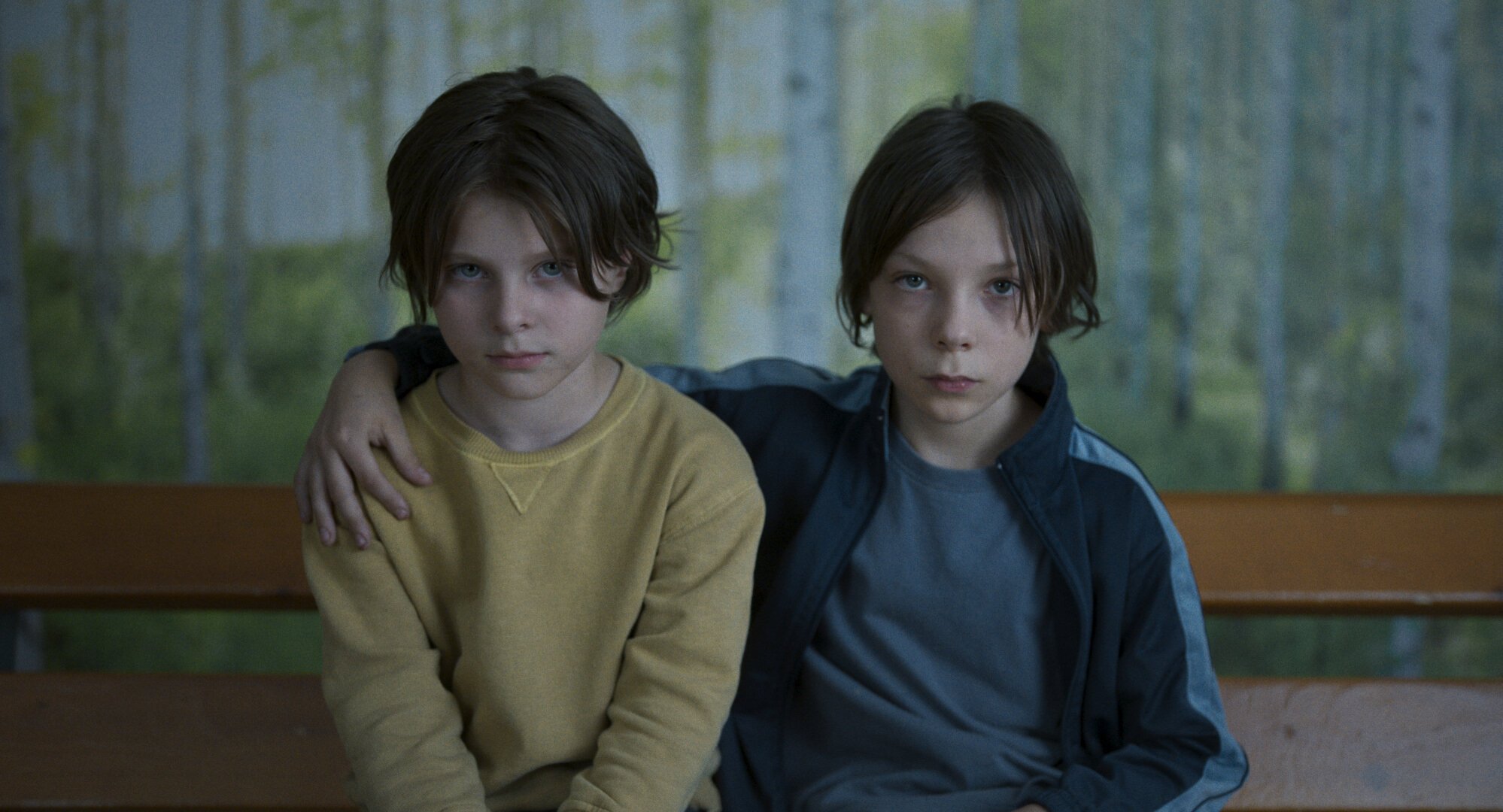
PLAYGROUND
Watched on April 21st 2022. This piece was written on June 13th 2022.
Don’t you remember when you were this small?
Laura Wandel’s feature-film debut is like rummaging through a time capsule of suppressed memories. Where a large part of becoming an adult is to disconnect from childhood experiences, naturally memories of school playgrounds feel further and further away as you get older. Looking back to those early years of primary school probably feels like viewing a memory through frosted glass.
In Playground, the camera pushes us up close to faded memories. The film’s Director of Photography, Frédéric Noirhomme, almost exclusively positions us with child protagonist Nora (played by Maya Vanderbeque) and utilises the camera’s shallow focus to blur the “adult world” around her. The height of the camera resists changing its eye-level position with Nora. The result is effective; simple in concept but clear. We are placed on her level throughout and see what’s of interest to her.
The camera may be closer to the ground than what is usual in a social realist drama, but don’t let that fool you. The situations and topics explored around society and the human condition are arguably more prevalent here than what you might see in most hard-hitting socio-political dramas. While we may live in a world populated with adult struggles, the fresh eyes of the young can really put our social problems into a different content. A perspective that places you with children too young to judge harshly, reacting and developing traits from the elders circulating around them. The impact that an adult’s life decision has on the daily lives of children is perhaps too speculative to measure, but the recognition that there has been an impact elicits an elementary concern around the scope of parental responsibility. To what extent do our actions affect the lives of our children?
Our protagonist Nora is seven-years-old when we first meet her. She is being brought to her first day of primary school by her dad and older sibling. Before she enters the school, she begs to go home; tearful and scared. Her father, holding back the tears too, lets a teacher take her hand and walk her into the school. She looks back while she is taken to the front door, and from this opening, we instantly get a strong idea of what kind of film you are strapped in for.
While tears are a familiar sight on any first day at a new school, this opening comes to represent something different once you reach further into the story. The painful reality is that entering the school system for the first time is a scary step for many. But once the child is let into the world of primary education, the protection and control a parent has over the development of their child almost instantly becomes limited. In one memorable shot in Playground, the school gates separate father and daughter. The father’s expression tells the conflict: despite him wanting to, he has very little say on the happens in thew within those gates. He cannot protect his children at the moment of abuse if he can’t be within the gates when it happens.
And, frankly, as a parent that is something you have to learn to live with. Of course, there is an argument made around the holes in the school system leaving room for such abuse, though no line is drawn until action spurs on solutions – and that is where crucial lessons can be learned.
A lot of my interest comes to be in the way Wandel’s writing displays the disconnect between adults and children. It is clear from the story that it is vital that this disconnect happens for sake of the child climatising independently to new situations - the school gates are gates for many a reason – though, there is clearly a misunderstanding happening between how we perceive school to be and how it actually is. Despite there being little change happening in the world of children, generation after generation, adults seem to forget that school as does the working world operate within their own set of principles. These principles are held up by the children based on a glimpsing perception of how the adult world functions. For the variety of what the film showcases, its core strength comes with its ability to tell a story that unlocks the mind of an adult viewer, penetrating into a near-universal understanding of something seemingly neglected to lost memories in the adult consciousness.
Five minutes into Playground and the pressure of unwritten childhood “rules” rush back to you. The film has the power to transport you again to an ecosystem that used to be so familiar. In the quieter moments, there is plenty of time to reflect on how the school system can shape character. Concern grows around the futures of the children whom this film is about. As viewers and adults alike, we have no jurisdiction in the world of children. Whatever we believe will help them could instead potentially affect their whole world in ways unpredictable to the adult.
Watched on April 21st 2022. This piece was finished on June 13th 2022.

Enjoy the read? Why not check out thoughts on The Worst Person in the World or another written piece?

